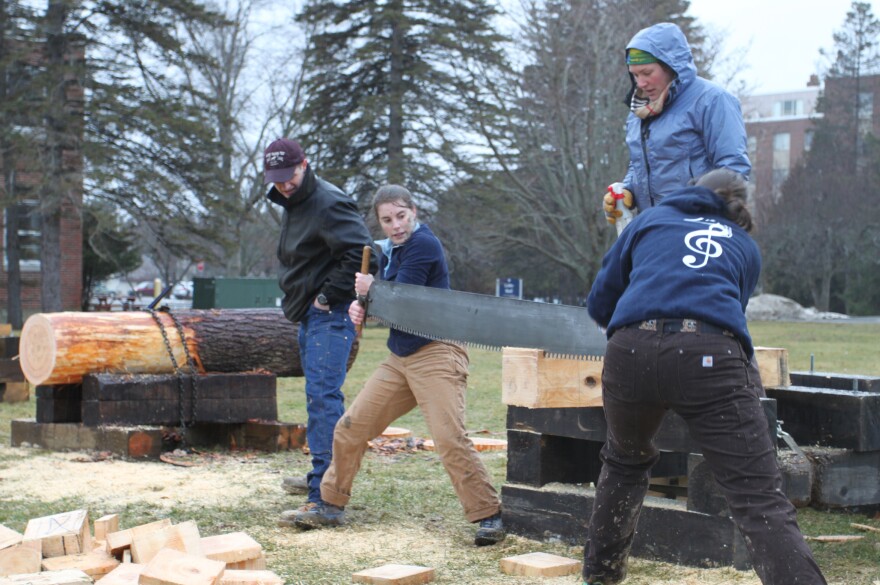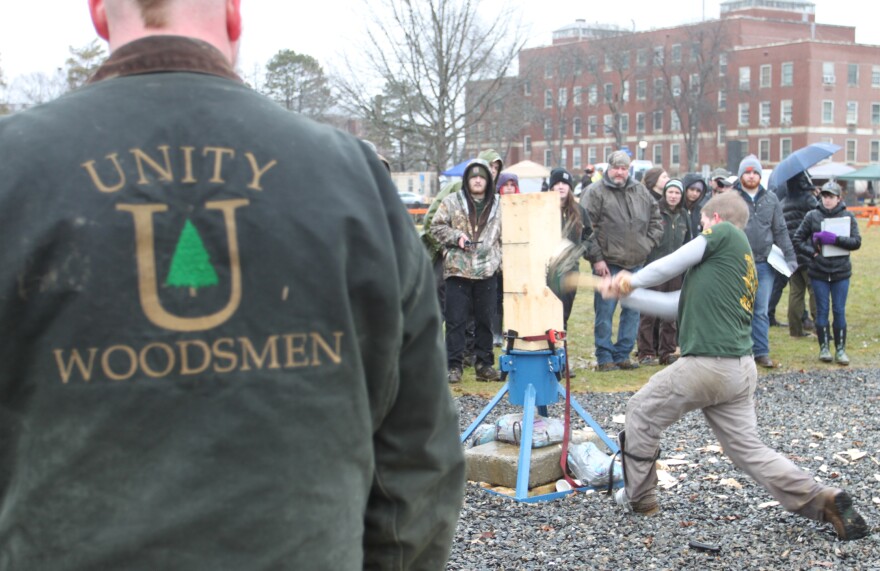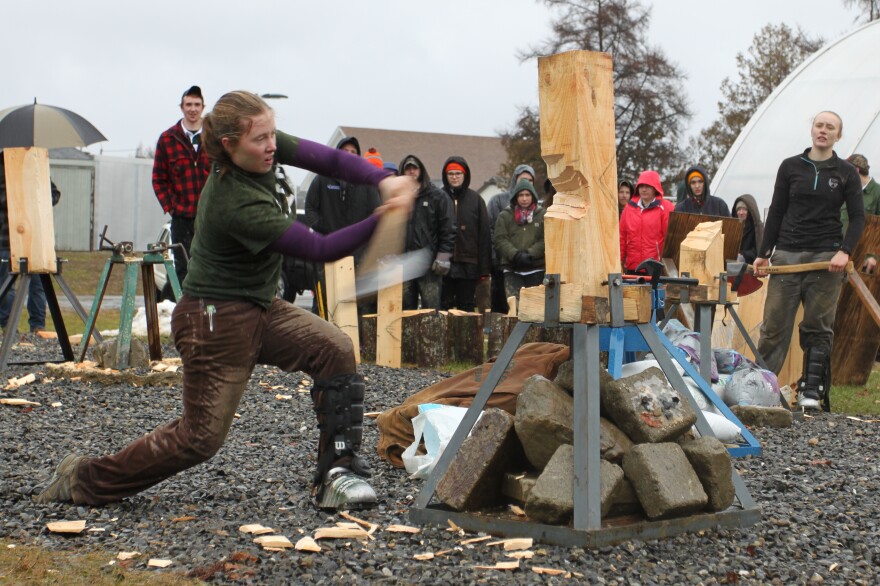As colleges and high schools prepare for basketball championship games and March Madness, there’s another sport going on. It’s played all year round, has no season and men and women often compete together. It’s “woodsmen’s sports.”
Not surprisingly, the chopping, sawing and stacking games that recall the region’s lumbering heritage are popular in colleges across the Northeast.
It’s not what might immediately leap to mind when you think of college sports. Rival women from Colby College and Unity College are hacking their way through six-inch vertical timbers clamped onto iron stands. They’re using heavy axes to notch the wood and get it to splinter as quickly as they can, while teammates cheer them on.
They don’t seem to notice the bone-chilling rain that’s been falling at the University of Maine Woodsmen’s Meet, turning the field into muck. Teams from New Hampshire, Vermont, Maine and upstate New York are here. And the action goes on in fair weather or foul, just as it would have in the woods a century ago.
“These are recreating events from history’s past, like this event you’re seeing here, vert chop, represents chopping down trees in the woods,” says Gradeigh Cameron, a member of the UMaine woodsmen’s team. “You name an event and it’s got a reason.”
While the women work on the pine posts, Cameron is mud-splattered and wet, along with everyone else watching from the sidelines. They’re all clearly having a great time.
But as fun as the games are, Cameron says the games feature practical life skills, such as proper ax and chainsaw use, and learning the properties of wood for building and burning. That will be useful for students like him — he plans to start a farm after he graduates with a degree in sustainable agriculture - and team president Bree Jarvis, who is studying forestry and conservation.
Jarvis, who hails from Massachusetts, got her introduction to woodsmen’s sports on a high school field trip to Maine.

“And we went to the Fryeburg Fair for the woodsmen’s day and I thought it was really cool, so I was like, UMaine has a really awesome woodsmen’s team,” she says. “It was a big draw for me to come here.”
The UMaine team, which has no coach, trains hard. They have a one-hour practice at 6 a.m. every weekday and a two- to three-hour practice each afternoon. UMaine team member Brendon Giroux, who comes from Vermont, says he doesn’t know of another sport that trains harder. But he says it’s just an extension of what rural, northeastern kids do in real life.
“I grew up splitting 30 cords of wood every summer for sugaring, and between the house wood, my grandmother’s wood,” he says. “I’ve just always loved splitting wood, I’ve always loved chainsaws, you can’t beat the smell of fresh pine lumber. You really can’t beat that smell.”

In addition to splitting and vertical chop, other events involve throwing axes — apparently an old-fashioned logging camp amusement — as well as herding logs in a pond with a tool known as a peavey. There’s also disk stack, which involves cutting wafer thin slices of wood with a chainsaw without letting them fall over.
As a co-ed sport, there are so-called Jack and Jill events with mixed teams, pulpwood throwing and double buck, where there’s one person on either end of a crosscut saw taking down big timber. Then there’s something known as the misery whip.
“Basically you take the big crosscut saw, pop off one handle and do it by yourself,” Giroux says. “They don’t call it the misery whip for nothing.”

Timber sport is relatively unusual in the world of athletics. It can involve co-ed teams. And it’s not just about kicking a ball around.
The meet’s head judge, Tim White, says it’s one of the only sports that are so directly linked to a major industry. And he says the effect of timber, paper and conservation can’t be underestimated.
“They’re keeping alive the skills that really set this country up to be what is it today, and to keep forestry skills alive,” he says.



